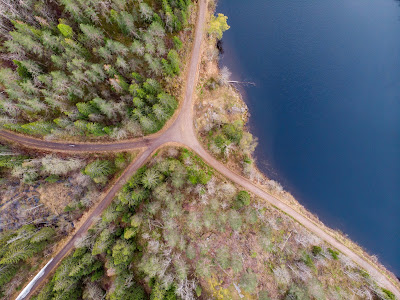Embarking on a spiritual journey is a transformative and enlightening experience. In the hustle and bustle of our modern lives, it's easy to lose sight of the deeper dimensions that make us human. The call to embark on a spiritual adventure is not a distant whisper; it's a beckoning from within, urging us to explore the vast landscapes of our own consciousness. Here's a guide to initiate your spiritual journey.
Self-Reflection and Awareness
Begin your spiritual adventure by taking a pause and turning your gaze inward. Reflect on your values, beliefs, and the purpose you seek. Cultivate mindfulness through meditation or simple moments of silence, allowing you to become more aware of your thoughts and emotions. Self-awareness and reflection are not separate endeavors but interconnected facets of a transformative journey.
Through the practices of mindfulness, introspection, and detachment, individuals discover the profound wisdom that resides within.
Explore Different Paths
Take the Bhagavad Gita, a revered scripture in Hindu philosophy, outlines various paths, known as yogas, providing a comprehensive guide to spiritual life. The Gita presents four primary yogas, each catering to different temperaments and inclinations.
- Karma Yoga, the path of selfless action, advocates performing one's duties without attachment to the results, emphasizing the transformative power of actions.
- Bhakti Yoga, the path of devotion, encourages a deep and loving connection with the divine, recognizing the unity of all beings.
- Jnana Yoga, the path of knowledge, involves contemplation and self-inquiry to realize the ultimate truth beyond the material world.
- Finally, Raja Yoga, the path of meditation and self-discipline, focuses on controlling the mind and senses to attain spiritual realization.
Connect with Like-Minded Souls
Seek out communities or individuals who share similar spiritual aspirations. Engaging with like-minded people provides support, inspiration, and a sense of belonging.
When you share experiences, listen to others, serve the community, and learn from the collective wisdom of those who have walked the path, you learn to embrace challenges as opportunities because spiritual growth often accompanies challenges. Viewing obstacles not as roadblocks but as opportunities for learning and transformation allows one to transcend the limitations of the ego and evolve spiritually.
The benefit of regular practice and patience is key in any spiritual journey. Establishing a regular practice that aligns with your chosen path, being patient with oneself and celebrating the small victories, no matter how small, is a significant part in this spiritual adventure.
Let us remember, that our spiritual journey is not a destination but an ongoing exploration of the profound depths within us.




